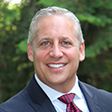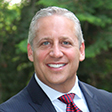Don't Make These 3 Pro Athlete Retirement Mistakes
Many players in the NFL and NBA famously run into trouble after retiring from the sports world. We can all learn from their mistakes.


Profit and prosper with the best of Kiplinger's advice on investing, taxes, retirement, personal finance and much more. Delivered daily. Enter your email in the box and click Sign Me Up.
You are now subscribed
Your newsletter sign-up was successful
Want to add more newsletters?

Delivered daily
Kiplinger Today
Profit and prosper with the best of Kiplinger's advice on investing, taxes, retirement, personal finance and much more delivered daily. Smart money moves start here.

Sent five days a week
Kiplinger A Step Ahead
Get practical help to make better financial decisions in your everyday life, from spending to savings on top deals.

Delivered daily
Kiplinger Closing Bell
Get today's biggest financial and investing headlines delivered to your inbox every day the U.S. stock market is open.

Sent twice a week
Kiplinger Adviser Intel
Financial pros across the country share best practices and fresh tactics to preserve and grow your wealth.

Delivered weekly
Kiplinger Tax Tips
Trim your federal and state tax bills with practical tax-planning and tax-cutting strategies.

Sent twice a week
Kiplinger Retirement Tips
Your twice-a-week guide to planning and enjoying a financially secure and richly rewarding retirement

Sent bimonthly.
Kiplinger Adviser Angle
Insights for advisers, wealth managers and other financial professionals.

Sent twice a week
Kiplinger Investing Weekly
Your twice-a-week roundup of promising stocks, funds, companies and industries you should consider, ones you should avoid, and why.

Sent weekly for six weeks
Kiplinger Invest for Retirement
Your step-by-step six-part series on how to invest for retirement, from devising a successful strategy to exactly which investments to choose.
The typical retirement planning story that we read about in the financial news involves a Baby Boomer looking to make the right choices at the end of a 35-year (or longer) career. We read them because most of us can probably relate to them.
But we can also learn a lot from another kind of retirement: that of the 25-year-old professional athlete. It might seem like a pro athlete in the NFL and a Baby Boomer in the workplace don’t have much in common, but they face a surprisingly similar set of challenges as newly minted retirees.
Unfortunately, for pro athletes, those challenges, and the mistakes that can come with them, are magnified — and so are their costs. Analysis by Sports Illustrated found that almost 80% of NFL athletes face serious financial distress or bankruptcy within two years of retiring from the league. Sixty percent of NBA players, who enjoy longer careers than their NFL colleagues, have similar problems within five years.
From just $107.88 $24.99 for Kiplinger Personal Finance
Become a smarter, better informed investor. Subscribe from just $107.88 $24.99, plus get up to 4 Special Issues

Sign up for Kiplinger’s Free Newsletters
Profit and prosper with the best of expert advice on investing, taxes, retirement, personal finance and more - straight to your e-mail.
Profit and prosper with the best of expert advice - straight to your e-mail.
There are many theories about why this happens, and there are certainly unique challenges to building a life after sports. But athletes often make three critical mistakes when retiring — mistakes that your average Boomer retiree is also surprisingly susceptible to.
Mistake 1: Seeing your balance and thinking it’s a lot of money
Whether you’re a 35-year-old professional athlete who has just left the league or a 65-year-old accountant ready to set aside the spreadsheets, it’s easy to jump into retirement with a little too much enthusiasm. After all, you’re probably itching to get started on traveling, hobbies and living a little.
But it’s important to take a step back: Your savings may look like a lot of money right now, but retirement can last a lot longer than you think.
According to the Centers for Disease Control, the average 65-year-old can expect to live almost 20 more years. Keep in mind that that’s an average: half of 65-year-olds will live longer, in many cases much longer.
In other words, that asset base you’ve worked so hard to put together might need to last you quite a while. So, when you’re building a spending plan for retirement, it’s better to err on the side of caution. Start by putting together a sustainable budget (click here for a budget worksheet) and making sure that your investment strategy is aligned with your needs and goals.
Just like a retiring athlete who wants to avoid problems later, it’s important to have a lifestyle that won’t deplete your savings too fast.
Mistake 2: Assuming you’ll get to choose your retirement date
Many people in their 50s and 60s have a retirement date in mind, but sometimes life gets in the way. Layoffs, health crises and even just lifestyle changes can change your plans for you. Much like the athlete who ends up with a career-ending injury, the possibility that you’ll have an unexpectedly early retirement is higher than you might realize. In fact, 48% of retirees end up leaving the workforce ahead of schedule, according to the Employee Benefit Research Institute. The majority aren’t doing it by choice.
That’s why a conservative view of your plans is so important. If you can save more, keep your expenses in check and invest wisely today, you’ll likely be in better shape if you lose out on a few years of additional income and savings later.
Of course, don’t take this to mean that you have to live like a pauper: Just be aware that your careful planning might encounter some headwinds. If you can build some conservatism into your financial plan and spending plan for retirement, you’ll buy yourself the gift of flexibility should you face a rockier (or earlier) transition than you expected.
Mistake 3: Planning to retirement, then not having something to do in retirement
Professional athletes have to be extremely focused on their sport, and many of us are so busy living our lives that we forget to think ahead. Just like a large number of ex-athletes, many retirees struggle with what to do once the structure in their lives — meetings, career, getting the kids to school — falls away.
Some retirees expect to live leisurely and read books, only to find that they’re extremely bored. Others experience a loss of meaning, productivity and camaraderie that they used to get from work. Still others find that the cost of the lifestyle they want exceeds the reality of their means.
To avoid these problems, it’s helpful to start thinking about your post-retirement life well beforehand — and to start laying the groundwork for it. Whether it means a second act as a part-time consultant or a champion at the horse shows, figure out how you want to spend your time, and what impact your plans will have on your income, expenses and quality of life.
Help yourself transition with ease
Some people ease into retirement and others fall into it, and for many people the transition comes as a shock. Aside from being lucky in life, the best thing you can do for your retirement is plan. Planning makes it more likely you’ll enjoy a stress-free retirement because it forces you to consider what you would do if it’s a difficult one.
Whether you’re a star quarterback or a company administrator, the right financial plan will account for your budget, household finances and investment strategy. Unlike a life on the field (or in your chosen vocation), it’s also unlikely to be particularly exciting: Great financial planning is, more often than not, methodical, prudent and practical. It’s a long-term endeavor that requires attention and patience.
In other words, financial planning for retirement isn’t the winning Hail Mary pass at the end of the game: It’s the training camps, the research, the strategies and the endless number of practices that get you there.
Written by Bradford Pine with Anna B. Wroblewska.
Profit and prosper with the best of Kiplinger's advice on investing, taxes, retirement, personal finance and much more. Delivered daily. Enter your email in the box and click Sign Me Up.

Brad Pine is a wealth adviser and president of Bradford Pine Wealth Group, based in Garden City, N.Y. BP Wealth Group assists individuals and entrepreneurs to create wealth, simplify their lives and plan for retirement. Honesty, integrity and reliability are the foundations of Pine's investment philosophy.
-
 Over 65? Here's What the New $6K 'Senior Deduction' Means for Medicare IRMAA Costs
Over 65? Here's What the New $6K 'Senior Deduction' Means for Medicare IRMAA CostsTax Breaks A new deduction for people over age 65 has some thinking about Medicare premiums and MAGI strategy.
-
 U.S. Congress to End Emergency Tax Bill Over $6,000 Senior Deduction and Tip, Overtime Tax Breaks in D.C.
U.S. Congress to End Emergency Tax Bill Over $6,000 Senior Deduction and Tip, Overtime Tax Breaks in D.C.Tax Law Here's how taxpayers can amend their already-filed income tax returns amid a potentially looming legal battle on Capitol Hill.
-
 5 Investing Rules You Can Steal From Millennials
5 Investing Rules You Can Steal From MillennialsMillennials are reshaping the investing landscape. See how the tech-savvy generation is approaching capital markets – and the strategies you can take from them.
-
 When Estate Plans Don't Include Tax Plans, All Bets Are Off: 2 Financial Advisers Explain Why
When Estate Plans Don't Include Tax Plans, All Bets Are Off: 2 Financial Advisers Explain WhyEstate plans aren't as effective as they can be if tax plans are considered separately. Here's what you stand to gain when the two strategies are aligned.
-
 Counting on Real Estate to Fund Your Retirement? Avoid These 3 Costly Mistakes
Counting on Real Estate to Fund Your Retirement? Avoid These 3 Costly MistakesThe keys to successful real estate planning for retirees: Stop thinking of property income as a reliable paycheck, start planning for tax consequences and structure your assets early to maintain flexibility.
-
 I'm a Financial Planner: These Small Money Habits Stick (and Now Is the Perfect Time to Adopt Them)
I'm a Financial Planner: These Small Money Habits Stick (and Now Is the Perfect Time to Adopt Them)February gets a bad rap for being the month when resolutions fade — in fact, it's the perfect time to reset and focus on small changes that actually pay off.
-
 Social Security Break-Even Math Is Helpful, But Don't Let It Dictate When You'll File
Social Security Break-Even Math Is Helpful, But Don't Let It Dictate When You'll FileYour Social Security break-even age tells you how long you'd need to live for delaying to pay off, but shouldn't be the sole basis for deciding when to claim.
-
 I'm an Opportunity Zone Pro: This Is How to Deliver Roth-Like Tax-Free Growth (Without Contribution Limits)
I'm an Opportunity Zone Pro: This Is How to Deliver Roth-Like Tax-Free Growth (Without Contribution Limits)Investors who combine Roth IRAs, the gold standard of tax-free savings, with qualified opportunity funds could enjoy decades of tax-free growth.
-
 One of the Most Powerful Wealth-Building Moves a Woman Can Make: A Midcareer Pivot
One of the Most Powerful Wealth-Building Moves a Woman Can Make: A Midcareer PivotIf it feels like you can't sustain what you're doing for the next 20 years, it's time for an honest look at what's draining you and what energizes you.
-
 I'm a Wealth Adviser Obsessed With Mahjong: Here Are 8 Ways It Can Teach Us How to Manage Our Money
I'm a Wealth Adviser Obsessed With Mahjong: Here Are 8 Ways It Can Teach Us How to Manage Our MoneyThis increasingly popular Chinese game can teach us not only how to help manage our money but also how important it is to connect with other people.
-
 Looking for a Financial Book That Won't Put Your Young Adult to Sleep? This One Makes 'Cents'
Looking for a Financial Book That Won't Put Your Young Adult to Sleep? This One Makes 'Cents'"Wealth Your Way" by Cosmo DeStefano offers a highly accessible guide for young adults and their parents on building wealth through simple, consistent habits.